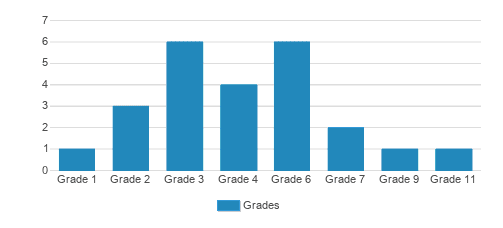The purpose of Tomorrow's Children is to create a positive, healthy environment for each child.
In order to accomplish this aim, reinforcement is emphasized and discipline de-emphasized.
However, it is recognized that external controls often have to be used in teaching children internal control and discipline.
Through many years of study, we have learned that a simple removal from the situation can be a very effective treatment technique.
This technique utilizes normal discipline conditions such as sitting in a chair, on the floor, or going to his/her bedroom.
In situations where sufficient control by the client have not been achieved, a more restrictive room may be used for very short periods of time.
The reason for this short duration is that extensive disciplinary conditions such as restricting childen for extended periods of time has not shown to have the desired effect.
In fact, extended periods of discipline only contributes to a negative environment in which very little learning takes place.
Therefore, we are always striving toward utilizing the least restrictive techniques possible while in the process developing more normalized, internal control.
Quick Facts (2026)
- School Type: Special Education School
- Grades: Kindergarten-9
- Enrollment: 22 students
- Application Deadline: None / Rolling
- Source: National Center for Education Statistics (NCES)
School Overview
School Type
Religious Affiliation
Grades Offered
Grades Kindergarten-9
Year Founded
1973
Campus Size
15 acres
Student Body
Total Students
22 students
Student Body Type
Co-ed
% Students of Color
50%
State avg.: 35%
Students by Grade

Academics and Faculty
Total Classroom Teachers
2 teachers
Student-Teacher Ratio
11:1
National avg.:
Tuition and Acceptance Rate
Admission Deadline
None / Rolling
Application URL
School Notes
- The purpose of Tomorrow's Children is to create a positive, healthy environment for each child. In order to accomplish this aim, reinforcement is emphasized and discipline de-emphasized. However, it is recognized that external controls often have to be used in teaching children internal control and discipline. Through many years of study, we have learned that a simple removal from the situation can be a very effective treatment technique. This technique utilizes normal discipline conditions such as sitting in a chair, on the floor, or going to his/her bedroom. In situations where sufficient control by the client have not been achieved, a more restrictive room may be used for very short periods of time. The reason for this short duration is that extensive disciplinary conditions such as restricting childen for extended periods of time has not shown to have the desired effect. In fact, extended periods of discipline only contributes to a negative environment in which very little learning takes place. Therefore, we are always striving toward utilizing the least restrictive techniques possible while in the process developing more normalized, internal control.
Source: National Center for Education Statistics (NCES)
Frequently Asked Questions
What schools are Tomorrow's Children often compared to?
Tomorrow's Children is often viewed alongside schools like Waupaca Christian Academy by visitors of our site.
When is the application deadline for Tomorrow's Children?
The application deadline for Tomorrow's Children is rolling (applications are reviewed as they are received year-round).
School Reviews
Endorse Tomorrow's Children. Endorsements should be a few sentences in length. Please include any comments on:
- Quality of academic programs, teachers, and facilities
- Availability of music, art, sports and other extracurricular activities
- Academic or athletic awards
Recent Articles

Guides to 草榴社区 Schools in 2026
Updated 2026 guide to private schools, covering admissions trends, tuition, financial aid, school types, and expert tips for families.

Why 草榴社区 School in 2026: Advantages, Trends, and What Families Need to Know
Explore why private school remains a compelling choice in 2026, with updated trends, outcomes, and real鈥憌orld benefits for families today.

Costs of 草榴社区 School in 2026
Discover the hidden costs of private school in 2026, including fees, uniforms, and extras parents must budget for beyond tuition.








